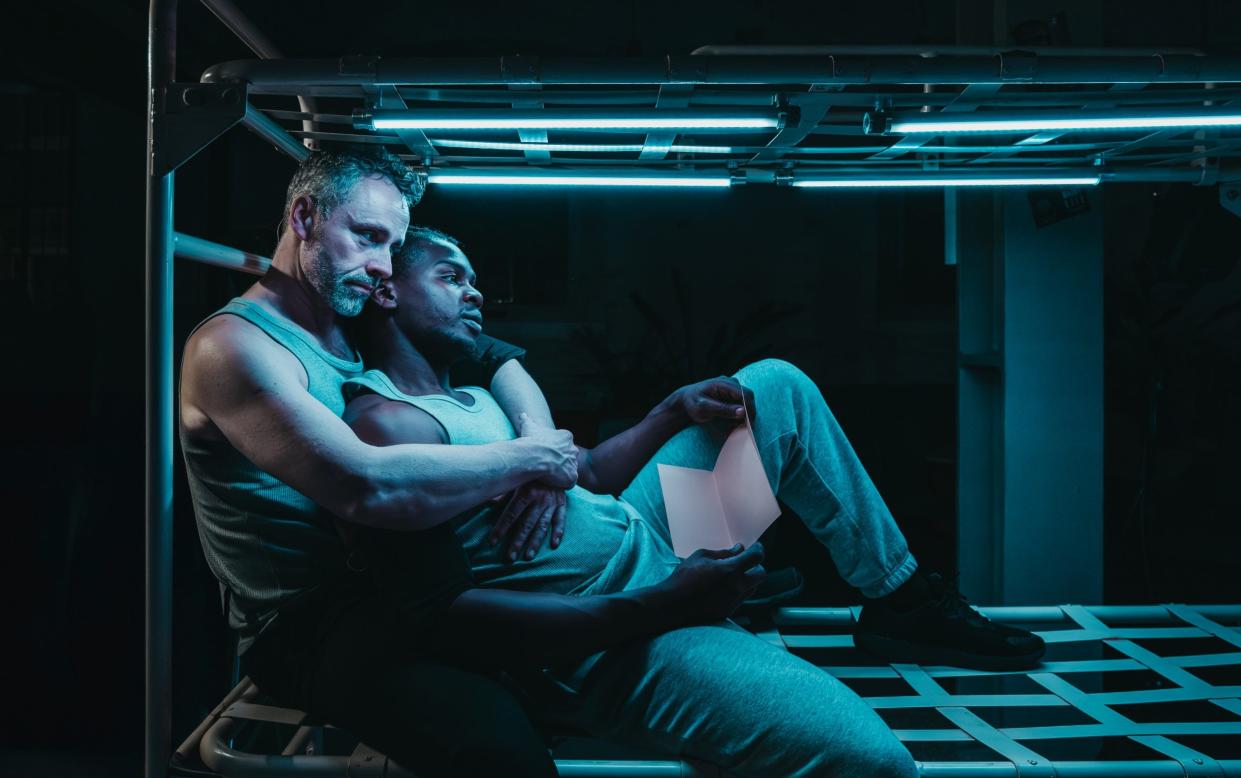Kiss Marry Kill: two homophobic murderers form an unlikely relationship in this provocative drama

A play about two convicted homophobic murderers who form an unlikely gay relationship in prison and become a married couple, Kiss Marry Kill is, to say the least, a far darker love story than Romeo and Juliet. And it requires not so much a suspension of disbelief – based as it is on real events – as a suspension of judgement, at least while you’re watching.
At the end of site-specific troupe Dante or Die’s exploration of crime, punishment and questionable redemption, you may have a sense that justice hasn’t been done to all the psychological implications and ethical considerations. But the act of introducing audiences to subject-matter that few theatre-makers would dare to touch elicits a form of gratitude.
The initial aim of the project – co-directed by Daphna Attias and Terry O’Donovan (with James Baldwin co-writing with them) – was to go behind a 2015 news story, when Mikhail Gallatinov, then 40, and Marc Goodwin, then 31, got married at Full Sutton prison in East Yorkshire – thought to be the first same-sex marriage behind bars since the marriage act of 2013. “They sealed their union with a kiss and a slice of cake,” it was reported. Which sounds sweet but both were serving life sentences for crimes which, as any online search will confirm, qualify as sickening.
The company say they were denied access to the duo, and also weren’t able to speak to the victims’ families, so opted to fictionalise the story, recruiting three ex-prisoners to join a six-strong company after extensive research and workshops. Hence, we get two protagonists called Paul and Jay, the actor playing the latter (Dauda Ladejobi) informing us directly that this is “a work of fiction”. Within minutes, Jay is reliving a gay encounter in a pub toilet that resulted in his fatal attack on the man propositioning him; and within a few more minutes, he’s inside the harsh prison system, wary, hostile and understandably, if hardly sympathetically, self-centred, aggrieved at being separated from his fiancée who has just given birth to their son.
The production, which I caught on Shaftesbury Avenue, in the beautiful, austere former Welsh chapel now run as the arts venue Stone Nest, is good at generating a sense of pervasive incarceration, with amplified door-slams, mindless physical routines and prison bunk-beds wheeled in different configurations, like some balletic Porridge. Through this depersonalising melee, Graham Mackay-Bruce’s Paul offers the life-line of a helping hand and a liberated twinkle, doggedly pushing at the locked doors of Jay’s sexual repression but with much shut away in himself too.
His capacity to see beyond this butch, taciturn coil of anger in turn challenges our preconceptions. Can one love a ‘monster’? No easy answers. In as far as it goes, the piece doesn’t put a foot wrong. But even though it factors in the rightful dismay of Jay’s partner Kerry (Lady Lykez, who also does break-out moments of lyrical spoken-word), the protesting incredulity of the chaplain, and the desolation of the husband of the man Jay killed, it feels as though on all sides there’s much more to say, to confront, and debate. Still, it’s grippingly, grittily different from your everyday West End fare.
Until April 27. Tours to May 19 (danteordie.com)


